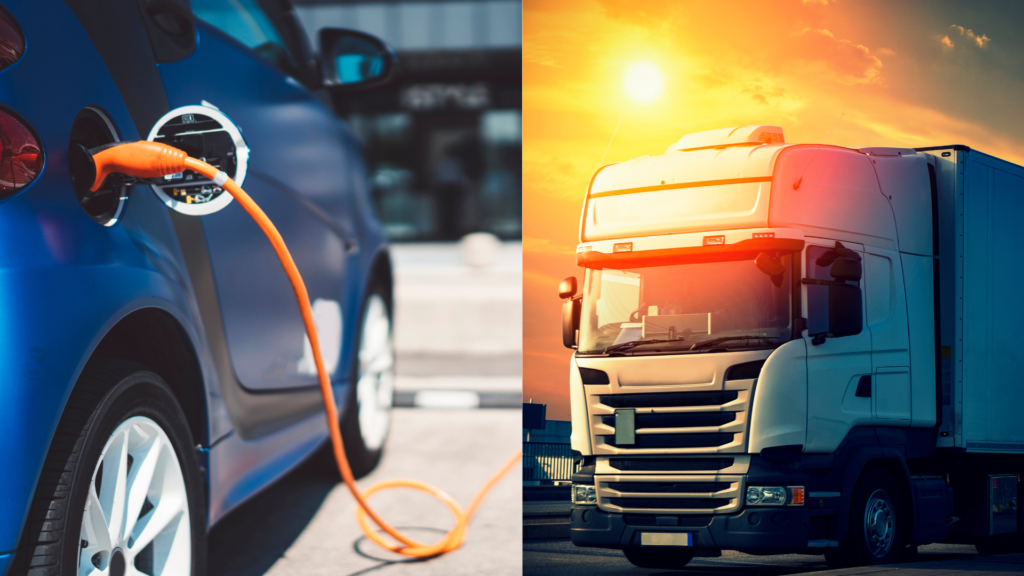State Joins Coast-to-Coast Movement to Adopt Zero-Emission Vehicle Regulations
Vermont moved forward with two key regulations to address pollution from transportation in the state: the Advanced Clean Cars (ACC) II program and the Advanced Clean Trucks (ACT) regulation. The Agency of Natural Resouces rule filing today to the Secretary of States office makes the rules effective date in Vermont on December 16.
Beginning in 2025, the ACT rule will require manufacturers to produce and sell an increasing percentage of zero-emission trucks and buses annually through 2035, which will have far-reaching public health, environment, and economic benefits for Vermonters. Several states, including California, Massachusetts, New Jersey, New York, Washington, and Vermont, have adopted the ACT rule.
The ACC II program promotes the electrification of light-duty cars and would require automakers to offer a gradually increasing percentage of zero-emission vehicles within the Vermont market, eventually putting the state’s car and light truck sales on a pathway toward 100 percent electric vehicle (EV) sales by 2035. This is in line with the legally-mandated requirements of Vermont’s Global Warming Solutions Act of 2020.
QUOTES FROM SUPPORTERS:
“Vermont said yes to getting cleaner cars and trucks on our roads, paving a path for healthier communities and critical climate action,” said Robb Kidd, Conservation Program Manager with the Vermont Sierra Club. “We applaud the Agency of Natural Resources for listening to the public’s call that Vermonters want the option to drive electric. Vermonters are ready for all-electric vehicles, and these rules will help to make sure they’re available to us as soon as possible.”
“This is a milestone moment, and great news for Vermonters’ pocketbooks, the planet and public health,” said Johanna Miller, Energy & Climate Program Director at the Vermont Natural Resources Council and Co-Lead of the Transportation Task Group of the Vermont Climate Council. “These Rules will ensure that cleaner, more affordable and efficient cars and trucks are delivered to Vermont and made more widely available to all Vermonters. They are also absolutely foundational to meeting the state’s legal obligation under the Global Warming Solutions Act, which is in line with the science that the world’s leading climate scientists say is essential to averting the worst consequences of a warming planet.”
“As a state that imports 100% of the fossil fuels we consume, Vermont has virtually no control over the price of gasoline and diesel, but we can control how we challenge that paradigm and create a more equitable, resilient economy by promoting the timely adoption of electric vehicles,” said Jordan Giaconia, Public Policy Manager with Vermont Businesses for Social Responsibility. “Decarbonizing Vermont’s transportation sector is not only an environmental imperative but an economic one. We applaud the Agency of Natural Resources for championing these dual imperatives and carrying these essential regulations forward.”
“These rules are a critical step in our state’s transition to a zero-emission future,” said Ben Edgerly Walsh, Climate and Energy Program Director with the Vermont Public Interest Research Group. “Car companies are beginning to make EVs in greater numbers, but without rules like these requiring that those vehicles are delivered to Vermont, Vermonters could easily be left behind in this transition to cleaner vehicles that are cheaper to own and operate than their fossil-fueled predecessors. We have more work to do to make EVs accessible to all Vermonters – and these rules are an essential step in that direction.”
“It’s great to see Vermont make important progress toward ensuring all Vermonters can access clean and affordable electric vehicles. These rules will help cut climate pollution and improve transportation solutions for Vermonters, and we’re pleased to see the state move forward with key provisions of the state’s Climate Action Plan,” said Lauren Hierl, Executive Director of Vermont Conservation Voters.
“Toxic pollution from cars and trucks overheats the earth and clogs the air in our communities,” said Conservation Law Foundation staff Attorney Chase Whiting. “These new rules will help us tackle the climate crisis while cleaning up the air for people and families in Vermont. This is truly a win-win, and it’s a huge step forward towards our clean energy future.”

